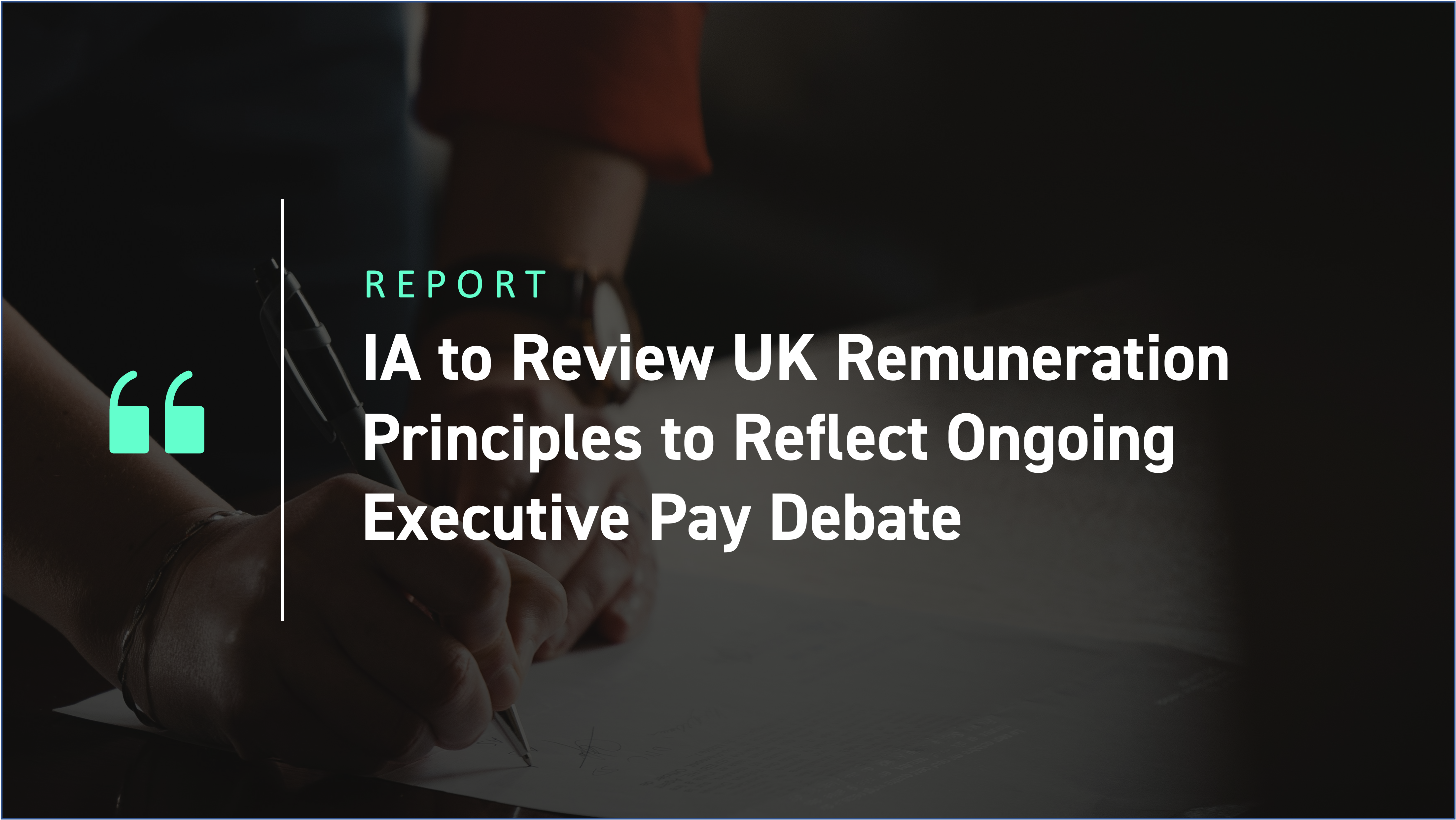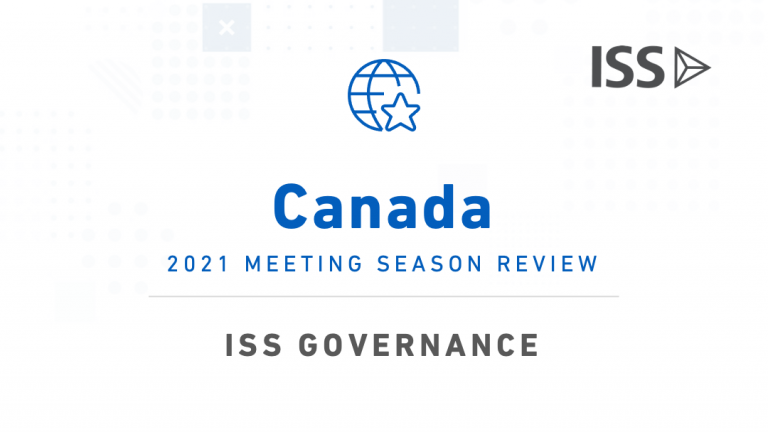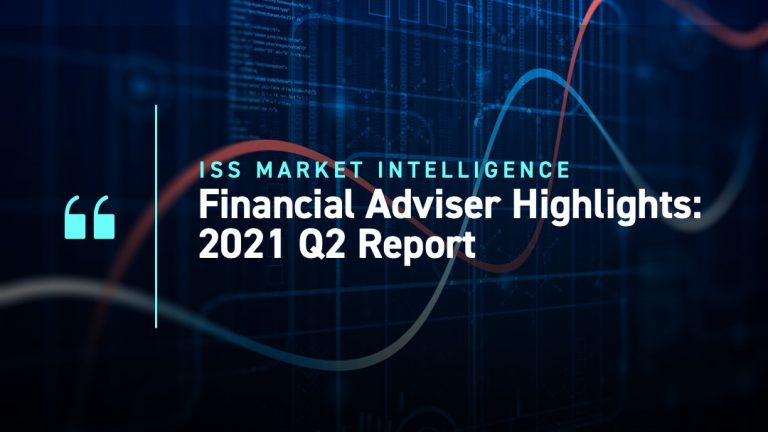In January 2024, Sky News reported that the UK Investment Association (IA) intended to carry out a fundamental review of the IA Principles of Remuneration later in 2024 to reflect evolving expectations of IA members and incorporate feedback from companies. This review, which was reported to be taken from a letter sent to the investment body’s members, has now been confirmed in a press release published on the IA’s website, to which the original letter has been attached.
The IA’s position, initially summarised only briefly in the news report, was characterised by some as representing a step change in relation to how many UK investors view executive remuneration standards, with the news outlet going as far as to state that the letter constituted a ‘green light’ from the UK investor community for larger pay packages for FTSE company executives.
This followed an earlier update announced in late 2023 by Legal & General Investment Management (LGIM) , one of the largest UK asset managers, to LGIM’s UK executive pay principles, which was also interpreted as opening the door for the introduction of more flexible remuneration structures.
Now that the IA’s letter has been made publicly available, it discloses that the IA met with almost 100 FTSE companies in September 2023 to discuss its remuneration principles and their views on the competitiveness of UK remuneration standards more generally. Although it reported there is no consensus on the one single issue that needs to be resolved to improve the competitiveness of UK remuneration, the IA discerned from its discussions three themes highlighted by the companies it met with:
- A need to increase executive pay opportunities through LTIP grant levels to address challenges in attracting US executives, as well as compete in the US market, particularly for larger UK companies and those that have significant US presence or revenues.
- A desire for more flexibility to make use of so-called hybrid remuneration schemes, which incorporate both performance and restricted shares. Such structures are used in the US and some other jurisdictions, and some UK companies feel that they should be able to adopt them for their executives.
- A belief that requirements in the UK Corporate Governance Code reduce the perceived value of remuneration. Individual elements which tie executive remuneration to the long-term perspective, were considered in aggregate to be disproportionate and place UK companies at a competitive disadvantage compared to their peers in other markets. Such elements include increased holding periods, shareholding guidelines, post-employment shareholding guidelines, and malus and clawback arrangements.
The letter stated that the IA intends to update its Principles of Remuneration later in 2024 in order to simplify them, and to ensure that they support a competitive market and deliver “the right outcomes for both shareholders and their underlying clients”.
The developments set out in the IA’s letter, should be considered alongside the wider remuneration debate in the UK, which is still ongoing. Executive remuneration is a perennial topic of discussion in the UK, and in 2023 the debate was reignited by the CEO of the London Stock Exchange (LSE), Julia Hoggett.
In May 2023, Ms Hoggett called for a “big tent” discussion to consider the competitiveness of UK executive remuneration and to ensure that British companies could attract and retain key talent. This was in the wake of some high-profile listing departures from the LSE, including Ferguson, BHP, CRH, TUI, Flutter and Smurfit Kappa, as well as the decision of UK-based ARM Holdings to list in the US instead of London.
Ms Hoggett also chairs the Capital Markets Industry Taskforce, which called for a “resetting” of UK corporate governance standards to ensure that they also consider UK competitiveness and economic growth.
It is against this backdrop of debate and claims of issues that some UK institutional investors and investment bodies are considering updating remuneration best practice guidance to allow for additional flexibility for companies in determining remuneration arrangements. For the IA specifically, this is characterised by the upcoming review of its own influential remuneration principles.
However, summarising this review as representing an opening of the pay floodgates, as some commentators argued when the details were initially reported, does not necessarily capture the essence of the IA’s letter. Rather, the letter suggests that the review represents a potential move away from the IA remuneration principles being seen as dictating UK market practice, in a similar vein to the Financial Reporting Council’s recent streamlining of the UK Corporate Governance Code to remove prescriptive wording from its principles (for more information, see Latest Version of the UK Corporate Governance Code Released). As the IA’s accompanying press release explains:
“In what is set to be another challenging year, investors will look to support company boards with the ongoing need to navigate the inflationary environment in order to motivate and reward all of their employees, including senior executives, to deliver a positive performance. Investors will also consider whether executive pay outcomes are appropriate given the performance achieved during the year, as well as how the committee has set targets for 2024.”
Consequently, for the IA, the 2024 UK proxy season will likely not represent a deviation from existing remuneration fundamentals or long-established UK norms of best practice (for example, seeking a clear link between executive pay and performance, the appropriateness of remuneration outcomes, and the consideration of senior executive pay alongside that received by the wider workforce, etc.). That said, the IA also states that it expects conversations around remuneration standards to be a key part of the season, and that it is yet to be seen how they will influence its upcoming remuneration principles review, set to take place later in 2024. Indeed, it will be interesting to see what the IA’s planned simplification of its principles, to ensure that they reflect “evolving member expectations”, will entail.
ISS will be monitoring developments in remuneration practices in the UK during the 2024 proxy season. We have already seen some companies propose remuneration structures that are in keeping with the three themes highlighted in the IA’s letter. These structures will be assessed on a case-by-case basis, considering the merits of the explanations provided. Post-season, we will also consider whether the ISS UK and Ireland benchmark voting guidelines on remuneration remain appropriate in light of the possible developments in UK remuneration standards.
By:
Tom Inchley, UK Research, ISS Governance




